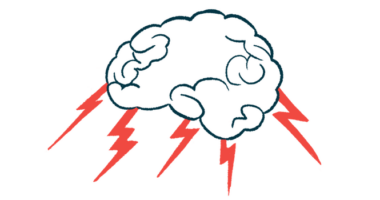Zorevunersen shows long-lasting seizure control in Dravet patients
Findings from two extension studies also reveal cognition, behavioral gains

Zorevunersen continues to show durable reductions in seizure frequency — alongside gains in cognition, behavior, and day-to-day functioning — in children and adolescents followed for up to three years. The investigational therapy targets the genetic cause of Dravet syndrome.
The findings come from two long-term extension studies that followed participants from an earlier Phase 1/2 trial. They were shared by zorevunersen’s developers, Stoke Therapeutics and Biogen, via an oral session and a poster at this year’s International Epilepsy Congress (IEC) in Lisbon, Portugal.
“With these additional clinical data, we are developing a long-term understanding of the potential for zorevunersen to improve outcomes for patients by addressing the underlying genetic cause of Dravet syndrome,” Barry Ticho, MD, PhD, chief medical officer of Stoke Therapeutics, said in a company press release. “The substantial and durable reductions in seizures and improvements in cognition and behavior in patients already receiving standard anti-seizure medicines support the potential for disease modification.”
Earlier results suggested significant reductions in seizure frequency
Dravet syndrome is mainly caused by mutations in the SCN1A gene, which provides instructions for making a protein part of a brain sodium channel called NaV1.1 that is critical for nerve signaling. When this protein doesn’t work correctly, signaling is disrupted, leading to seizures and other disease symptoms.
Usually, patients have one SCN1A gene copy that is mutated and another normal one. Zorevunersen, formerly STK-001, is an antisense oligonucleotide designed to increase production of functional Nav1.1 from the healthy SCN1A gene copy. This aimed at helping to restore nerve signaling and ease symptoms.
The results presented at this year’s IEC come from two open-label extension (OLE) studies, SWALLOWTAIL (NCT04740476) and LONGWING (ISRCTN12811235), which are following participants from the completed Phase 1/2a trials MONARCH (NCT04442295) and ADMIRAL (ISRCTN99651026).
In MONARCH and ADMIRAL, 81 children and adolescents with Dravet syndrome, ages 2 to 18, received single or multiple doses of up to 70 mg zorevunersen alongside standard anti-seizure medications.
Earlier results suggested significant reductions in seizure frequency. Six months after the last dose, median seizure frequency had decreased by 57.3% in participants who received a single 70 mg dose and by 73.6% in those treated with the multi-dose 70 mg regimen.
Zorevunersen now being evaluated against a sham treatment
Following these trials, 74 patients opted into the extension studies, where they continued on maintenance doses of zorevunersen of up to 45 mg given approximately every four months.
One-year results from the two extension studies showed that children and teens treated with zorevunersen maintained substantial, long-lasting seizure reductions. Newly presented data demonstrated that those who began with multiple 70 mg doses in the initial trials and then continued on lower maintenance doses (30 mg to 45 mg) saw their median number of convulsive seizures drop by about 51% to 89% through month eight. In addition to seizure control, patients also saw improved cognition, behavior, and overall clinical status.
After two years in the OLEs, they also showed steady gains in communication skills — like speaking and understanding — along with improvements in daily life and overall well-being. Zorevunersen continues to be safe and well-tolerated.
The therapy is now being evaluated against a sham treatment in the pivotal Phase 3 EMPEROR (NCT06872125) trial that’s designed to enroll up to 150 children and adolescents with Dravet syndrome, ages 2 to 18. According to the companies, the first patient has already been enrolled, and the trial is now recruiting participants at multiple sites in the U.S. and Japan.
“The zorevunersen data generated to date are encouraging and support the design of the Phase 3 EMPEROR study now enrolling and dosing patients,” said Katherine Dawson, MD, head of the therapeutics development unit at Biogen. “The effects observed so far are bringing greater awareness to Dravet syndrome as a neurodevelopmental disorder while generating increasing interest in EMPEROR.”









